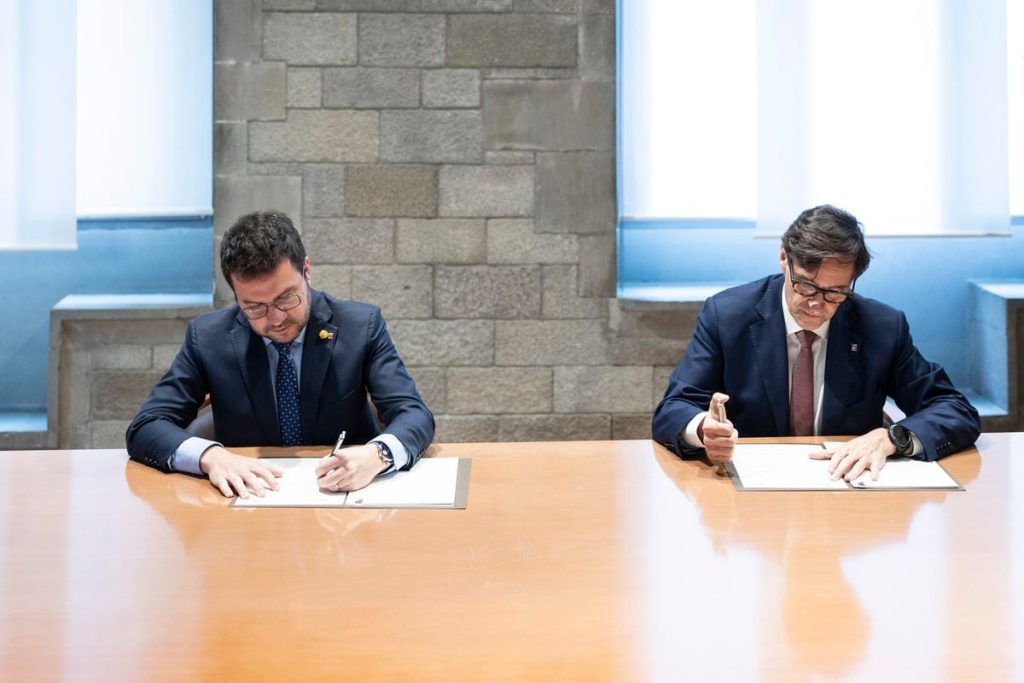ERC is not willing to hand over the reins of the Generalitat de Catalunya to the socialist candidate, Salvador Illa, even though he won the elections by a wide margin over the Republicans and Junts, according to all polls. Junts also refuses to concede that the Republicans of Pere Aragonès and Oriol Junqueras are ahead of them in the electoral count on May 12. Seven weeks before the Catalan regional elections, the parties are internally considering all possible scenarios for forming a coalition to support a candidate for investiture. However, these coalitions come with disadvantages and some may be undesirable for the parties involved. The likely winner, Salvador Illa, has the support of the polls as well as the optimism and unity within the PSC around the former Minister of Health, who also won the last parliamentary elections on February 14, 2021.
The PSC has supported the current government with the Republicans in the past, but there is no guarantee that they will receive the support of the Republicans this time. Another force would have to join them to reach the absolute majority of 68 seats required by the Catalan Parliament. Speculation about Junts’ support for the Socialists in exchange for demands for greater self-government, including clearing the way for a referendum on Catalonia’s self-determination, is strongly rejected by the PSOE. Additionally, ERC will not stop talking about a referendum, but will prioritize securing unique funding for Catalonia. The fight for supremacy within the pro-independence camp will be fierce, while the PSC will try to keep the campaign focused despite distractions from the amnesty law or corruption scandals.
Salvador Illa will not escape being included in the list of witnesses that the PP is preparing for the Senate investigation committee related to the management of the pandemic and the Koldo corruption case. The PP is planning to be ruthless in their investigation, targeting Illa as a central figure for attack. While there may not be a direct parallel with the Basque Country and the central government, there is a parallel in the struggle between nationalism. A recent poll shows a tie in seats between PNV and EH Bildu, with the support of the PSE-PSOE to PNV being the preferred option by voters. Despite a potential electoral win by EH Bildu, the socialists are unlikely to shift their support.
The situation in the Basque Country will have implications for the Government of Spain, as EH Bildu is expected to maintain support for the central government regardless of the outcome in the Basque Country elections. Their strategy is to differentiate between Madrid and Vitoria. The dynamics of the political landscape in Catalonia and the Basque Country are intertwined and may have implications for the central government as well. The political scenario is complex and constantly evolving, with parties jockeying for power and influence in the regions. The outcome of the regional elections will have an impact on both regional and national politics, shaping the future of governance in Spain.















